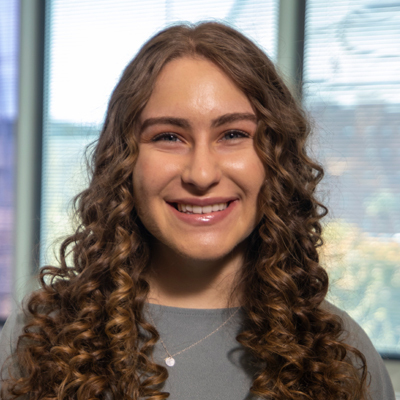FLAGSTAFF – On the second floor of Flagstaff Medical Center, bright colors and Native American symbols burst from the walls – in murals painted in yellows, greens and blues. In one, ocean waves roll peacefully. Another shows the sun piercing through deep green pines.
The murals span most of the inpatient section of the hospital’s behavioral health unit, where, for about a week, people receive treatment for depression, anxiety and other mental health concerns.
The murals – which were the vision of an artist who also is a mental health technician – not only help these patients feel more at home. They can help patients heal, too, said Kim Alexander, the unit’s director.
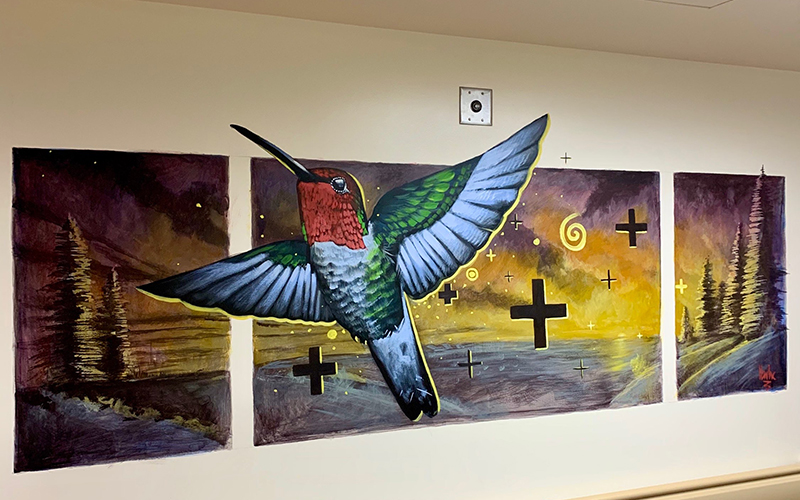
Landis Bahe’s finished mural inside the behavioral health unit at Flagstaff Medical Center on Dec. 13, 2019. (Photo courtesy of Duane Koyawena)
“They need a place to be safe, where we can stabilize them and gather support, help them do a medication adjustment if needed, and then return them to their community,” Alexander said.
The art helps some “just start talking,” she said, “about whatever it is that they’re struggling with.”
Flagstaff is a gateway to many of the state’s Native American reservations, including the Navajo, Hopi and Havasupai, and Native Americans make up 26% of the population in Coconino County. The medical center helps serve that population, and the artwork speaks to Native culture and helps ground patients to their roots, counselor Leona Tsinajinnie said.
The murals promote healing by sparking positive memories and giving patients hope and motivation to get better, said Tsinajinnie, who is Navajo. “It brings you back to where you are from.”
Duane Koyawena, a Hopi artist who has worked at the unit for about eight years, conceived the mural project last year. The hospital was undergoing renovations, and Koyawena heard the artwork already hanging on the walls would come down because of potential risks to patients.
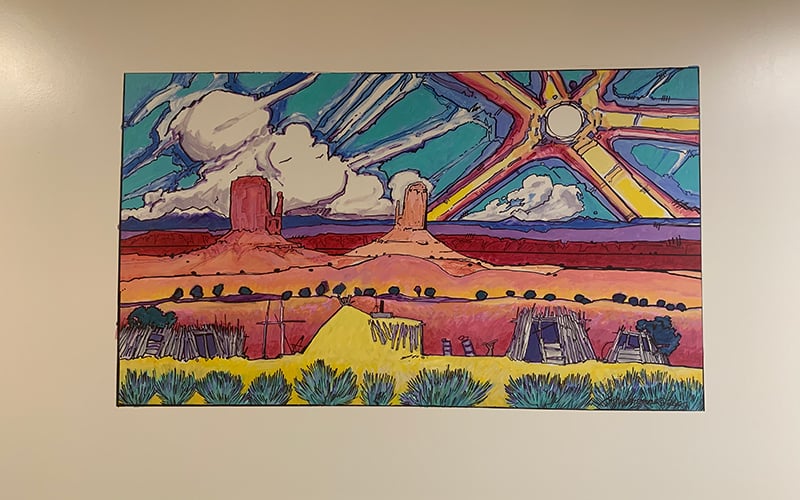
Baje Whitethorn Sr.’s finished mural on Dec. 13, 2019, inside the behavioral health unit at Flagstaff Medical Center. The murals are meant to help the patients feel more at home and, even, heal. (Photo courtesy of Duane Koyawena)
He enlisted a group of local artists, including “Mural Joe” Cornelius and Navajo artists Landis Bahe and Baje Whitethorn Sr., who dedicated their time and talent to the two-week project.
In his murals, Koyawena used symbols and colors that Hopi people would recognize and be reminded to strive for positivity and a good life.
Red marks in the middle of one mural symbolize strength, and mountains in the corner depict the San Francisco Peaks, where Hopi gods dwell. Those images are meant to help patients focus on healing.
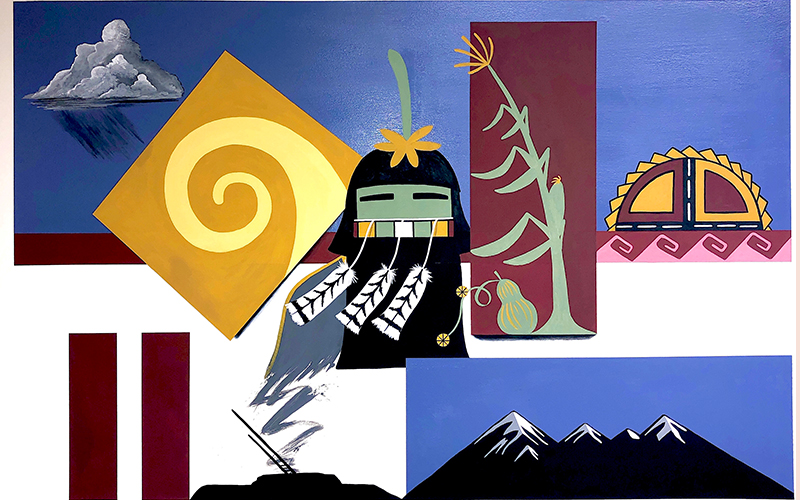
Duane Koyawena’s finished mural inside the behavioral health unit at Flagstaff Medical Center on Dec. 12, 2019. In his murals, Koyawena used symbols and colors that Hopi people would recognize and be reminded to strive for a good life. (Photo courtesy of Duane Koyawena)
Koyawena said he can relate to patients in the unit because of his previous struggles with addiction. Art, he said, helped pull him out of those dark times and reconnect him with his roots. When he saw a flower or a mountain landscape, it reminded him there was still beauty and life in the world.
Using art as therapy is a philosophy and strategy that he aims to share with patients.
“I feel like these images are kind of like that light on the other side,” Koyawena said. “That’s kind of the vision of what I wanted for these murals … to show these people that there is still life.”
Visual arts help people express thoughts and emotions that “are too difficult to put into words,” according to a study in the American Journal of Public Health. The researchers concluded that drawings and artwork patients produce can provide perspective into their illnesses.
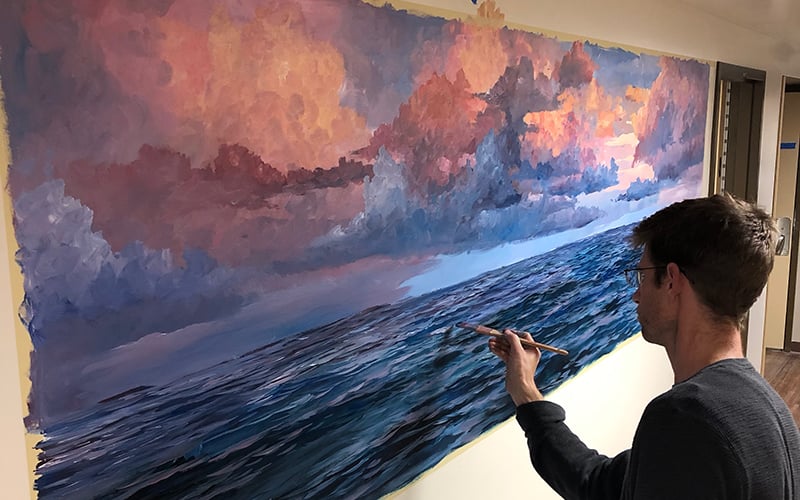
“Mural Joe” Cornelius paints an ocean mural on Dec. 10, 2019, in the behavioral health unit at Flagstaff Medical Center. (Photo courtesy of Duane Koyawena)
According to Harvard Medical School, creativity and the arts can help people relax and bring down their stress levels.
Alexander and Koyawena said that for the short time since the murals were painted, patients have enjoyed the art and what each work means to them, signaling a few sparks of healing.
“Seeing the few patients that have experienced these murals, it’s doing exactly what we had envisioned it to do,” Koyawena said.
